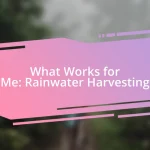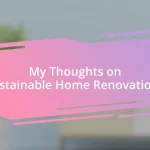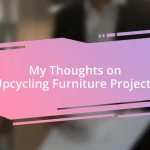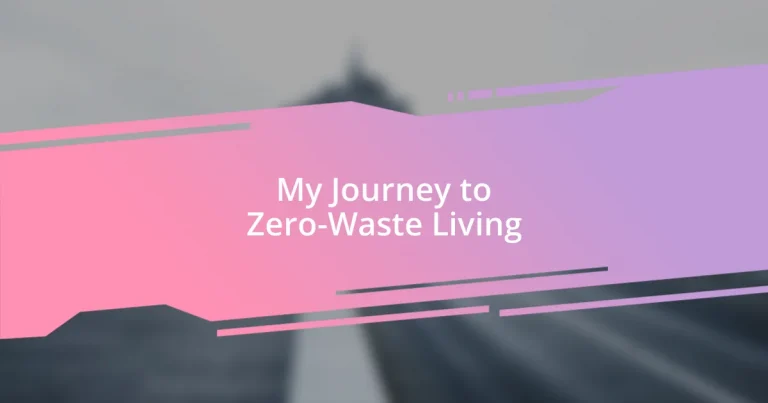Key takeaways:
- The realization of personal responsibility towards waste after witnessing pollution at the beach inspired a commitment to zero-waste living.
- Small, intentional changes, such as using reusable bags and bulk shopping, significantly reduce waste and enhance sustainability in daily life.
- Community support and flexible mindset are crucial in maintaining long-term zero-waste practices, emphasizing progress over perfection.
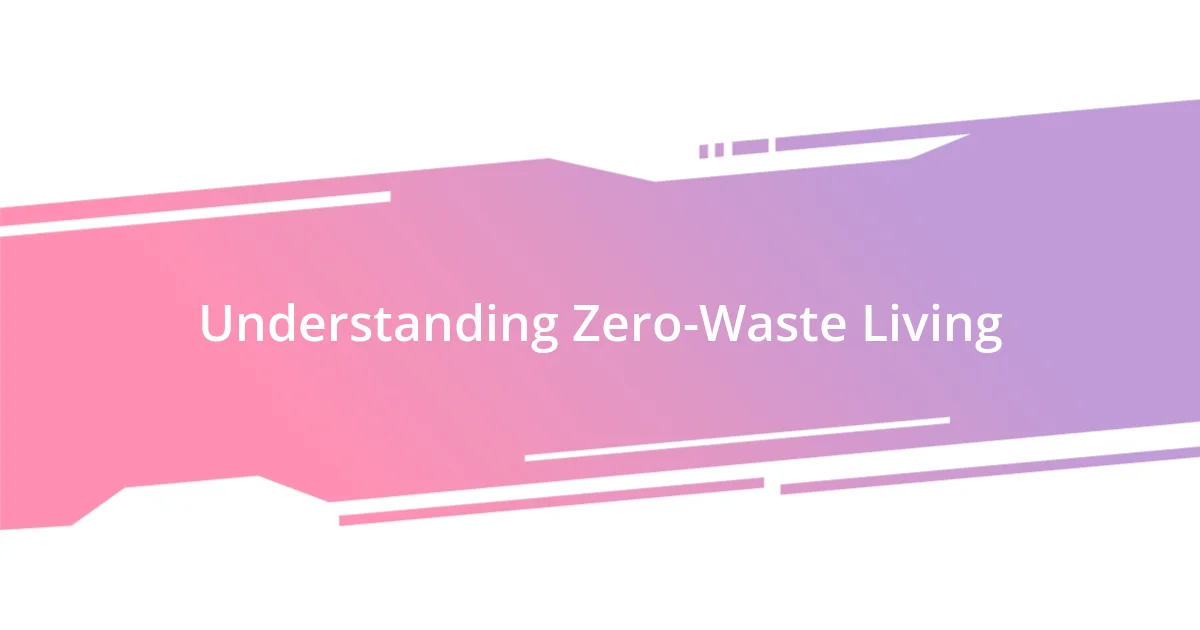
Understanding Zero-Waste Living
Zero-waste living is more than just a trend; it’s a shift in mindset that prioritizes sustainability and mindful consumption. I remember my early days of trying to reduce waste—I felt overwhelmed by the sheer amount of plastic packaging in my life. Have you ever scrutinized your grocery haul and wondered how much of it will just end up in a landfill?
Embracing zero waste means making small, intentional choices every day. For instance, I started carrying a reusable bag and a stainless-steel water bottle everywhere I went. It felt empowering to know that these simple actions were reducing my impact. Isn’t it interesting how small habits can lead to big changes over time?
In essence, zero-waste living invites us to rethink our relationship with materials and consumption patterns. The emotional satisfaction I’ve felt when turning down single-use plastics has been profound. It’s about creating a life where waste is minimized, but that journey requires a deep commitment to self-reflection and creativity in repurposing items we may have previously discarded. What can you let go of today to embrace this lifestyle?
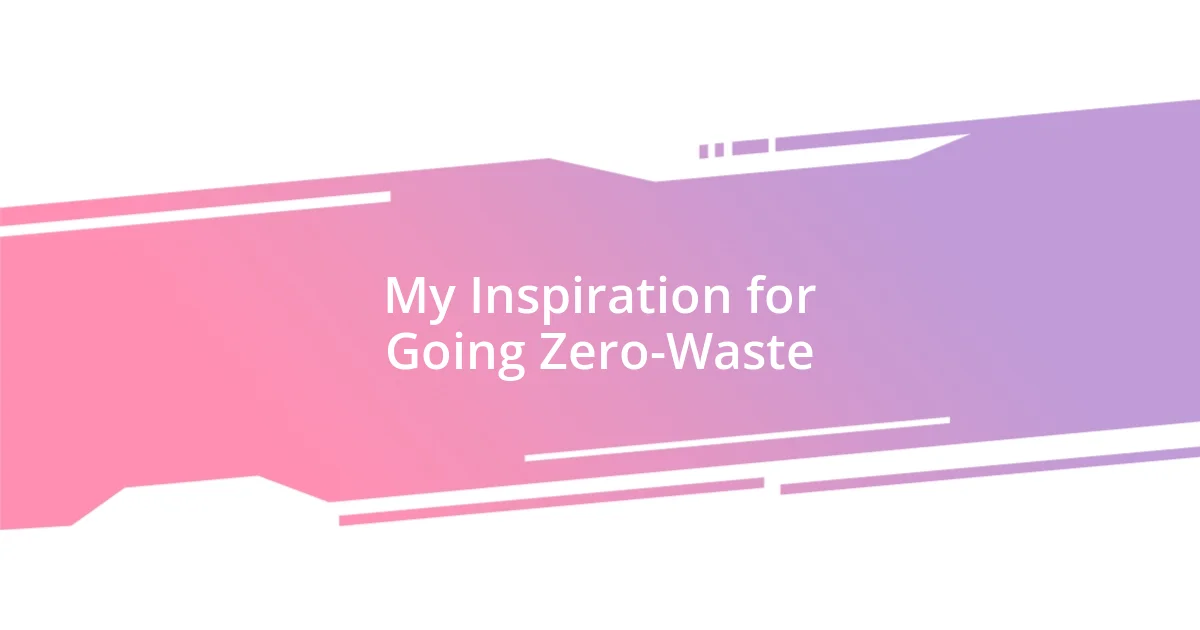
My Inspiration for Going Zero-Waste
The inspiration for my zero-waste journey truly blossomed during a casual afternoon at a local beach. I went to enjoy the sun, but instead, I was struck by the sight of trash littering the sand and the ocean’s edge. It was a stark reminder that every piece of plastic I used contributed to this issue, and it broke my heart. I could no longer turn a blind eye to the reality around me.
Additionally, a pivotal moment came when I read about the impact of waste on climate change. I remember feeling a mix of anger and determination as I learned how much waste each of us generates. This knowledge motivated me to dive deeper into the principles of zero waste. I felt a sense of responsibility not just to myself, but to future generations. Isn’t it empowering to think that our choices can influence the world?
Lastly, another source of inspiration emerged from my community’s efforts to support sustainable living. I attended a workshop on composting, and the energy in the room was infectious. Sharing ideas and practical tips with like-minded individuals ignited a passion in me that I didn’t know existed. The sense of connection and mutual support was invigorating. Who can I inspire next in this journey?
| Experience | Impact |
|---|---|
| Casual beach outing | Awareness of pollution |
| Research on waste’s role in climate change | Motivation to change behavior |
| Community workshop on composting | Ignited passion for sustainability |
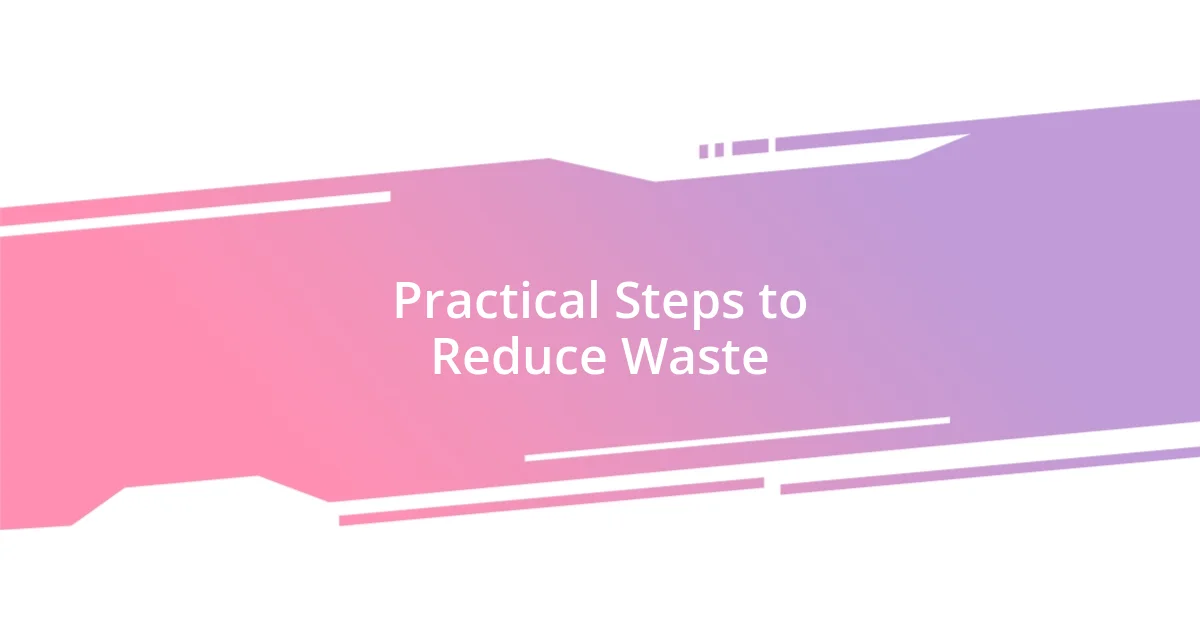
Practical Steps to Reduce Waste
One of the most rewarding steps I took on my journey to zero waste was decluttering my home. Initially, it felt daunting; I was attached to many items that served little purpose. However, as I began to let go, I was met with an incredible sense of relief. It was like shedding a heavy weight. I realized that less truly is more. This process not only reduced waste but also opened up space for conscious purchases that align with my values. Here are some practical steps you can take to start reducing your waste:
- Assess your belongings and donate or recycle items you no longer use.
- Choose quality over quantity when buying new products.
- Shop second-hand to extend the life of items you need.
I also learned to be mindful of what comes into my kitchen. By planning meals in advance, I minimized food waste significantly. I often find myself exploring creative ways to use leftovers, turning what once might have ended up in the trash into delicious new meals. It’s fascinating how a little creativity can transform our habits! Here are a few additional strategies to help you reduce food waste:
- Keep a separate container for vegetable scraps to make broth.
- Store perishable items properly to extend their shelf life.
- Organize your pantry so that older items get used first.
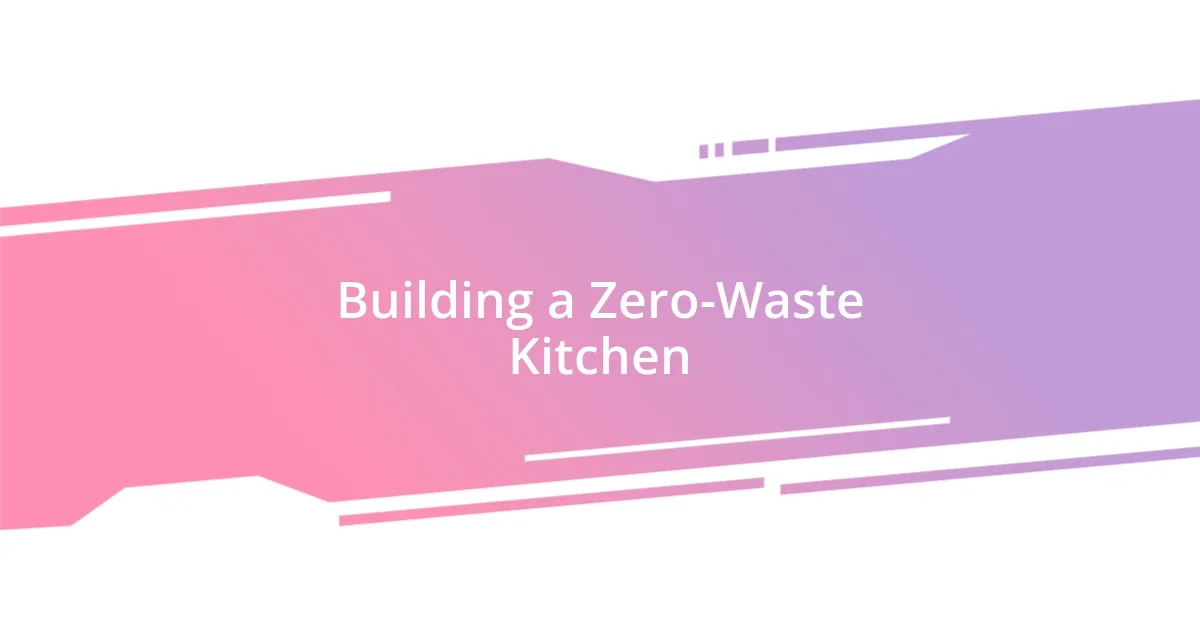
Building a Zero-Waste Kitchen
Building a zero-waste kitchen really began with small, intentional choices. I remember the moment I decided to swap out plastic wrap for beeswax wraps; it felt like I was taking a stand against single-use plastics. The first time I used them, I felt a rush of pride knowing I was making a difference, even if it was just a tiny one. Isn’t it liberating to think that we can replace convenience with sustainability?
As I ventured deeper into this journey, I discovered the joy of bulk shopping. The thrill of filling up reusable containers with grains, nuts, and spices was both practical and exhilarating. I was astounded by the variety and quality available without any plastic packaging. Plus, it led to healthier choices for me and my family. Have you ever stood in a bulk aisle and felt the satisfaction of choosing what goes home with you, free from waste?
One of my favorite practices is using mismatched jars for storing food. They not only add a rustic charm to my kitchen but also remind me of the diverse meals I’ve created. It’s a simple way to reduce clutter while embracing creativity. I often enjoy scouring thrift stores and garage sales for unique glass jars; each has a story, and they help me reduce waste. Doesn’t it feel good to give a second life to something that would otherwise end up in the landfill?
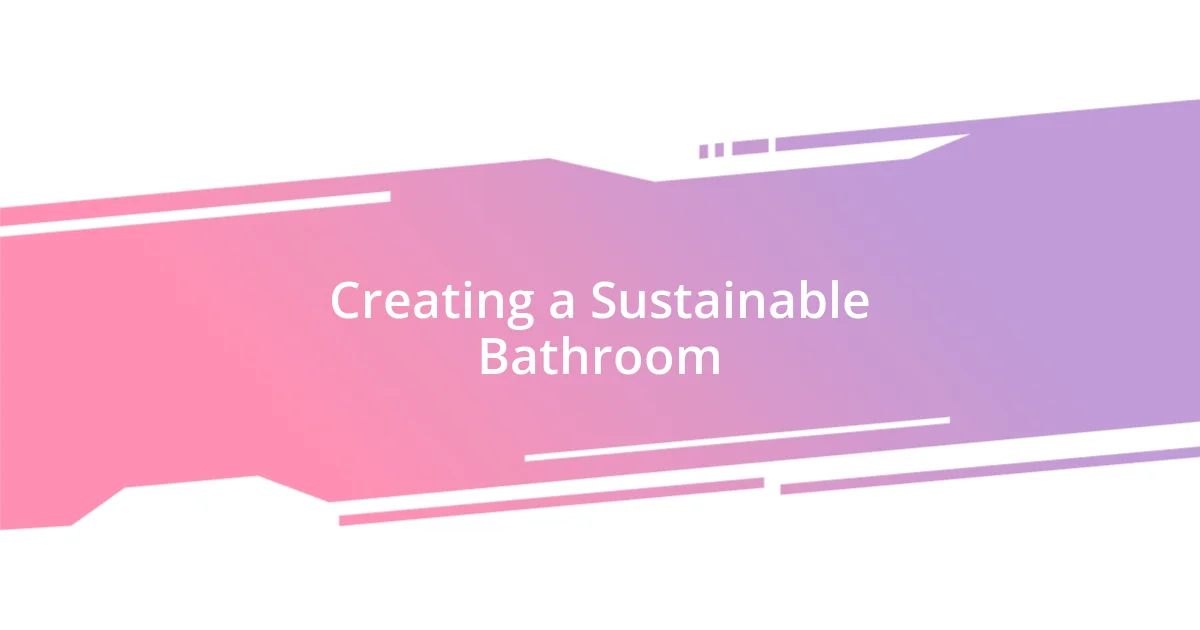
Creating a Sustainable Bathroom
Creating a sustainable bathroom has been a journey of discovery and transformation for me. I remember the moment I replaced disposable cotton pads with washable ones; it felt revolutionary. The first time I tossed them into the washing machine instead of the trash, I felt this surge of achievement—like I was finally aligning my daily routines with my values. Have you ever made a swap that instantly sparked a change in your perspective?
Building my eco-friendly bathroom didn’t stop with just cotton pads. I found joy in picking out a bamboo toothbrush. Not only does it feel great in my hands, but it also makes me feel good about reducing plastic waste. Every small change adds up, doesn’t it? The thrill of knowing that each item I use is contributing to a healthier planet is incredibly motivating.
One of my proudest moments was discovering how easy it is to whip up my own natural bathroom products. I started making a simple all-purpose cleaner using vinegar and essential oils. The first time I used it, I felt empowered, knowing every ingredient was safe for both my family and the environment. It’s these little DIY projects that add a personal touch, and aren’t we all looking for ways to create a space that reflects our values?
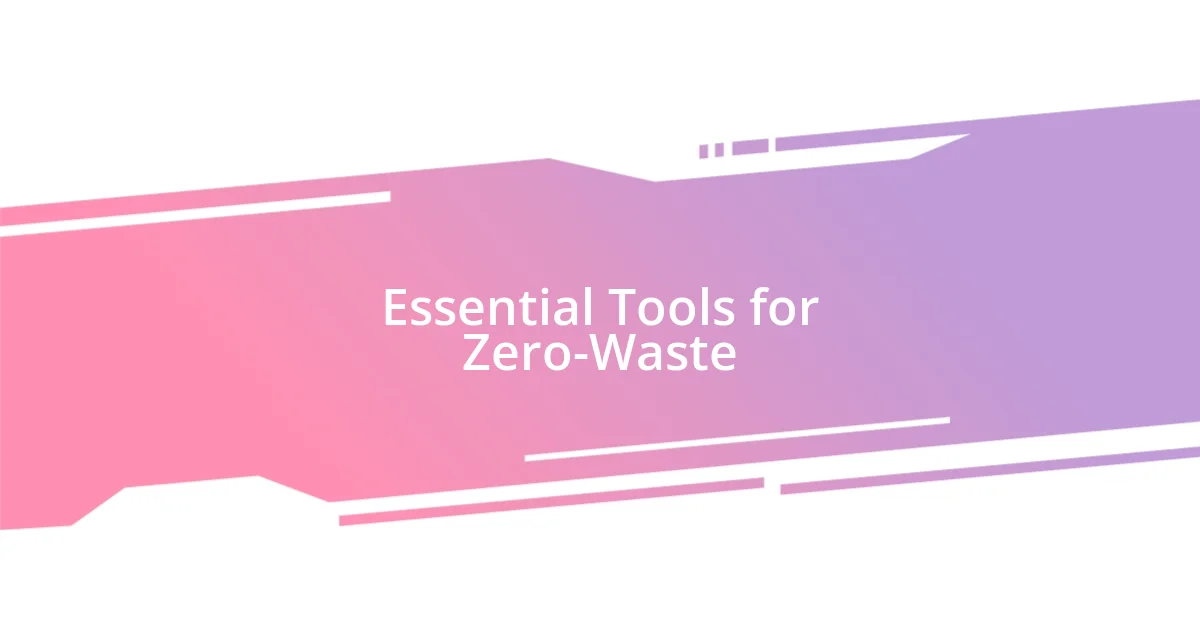
Essential Tools for Zero-Waste
I’ve found that reusable shopping bags are a game changer in my zero-waste journey. The first time I filled them up with fresh produce instead of relying on plastic bags, it felt like I was really making a commitment to my new lifestyle. Isn’t it comforting to think that with each trip to the store, I’m saying no to plastic and yes to sustainability?
Another essential tool I cherish is a set of stainless steel straws. I used to overlook how often I used straws until I started paying attention. Making the switch has not only cut down on my plastic consumption but also has turned mundane drinks into something special. Whether it’s smoothies or iced tea, I love the way these straws elevate the experience. Have you tried sipping your favorite drink with one? It’s surprisingly satisfying!
Lastly, I can’t emphasize enough the importance of a good compost bin. Initially, I was hesitant—how could a simple bin drastically change my waste output? But once I started composting food scraps, I felt a deep connection to the earth. Watching waste transform into rich compost for my garden was like witnessing nature’s magic firsthand. It made me realize how much potential our daily waste holds; it’s both humbling and inspiring.
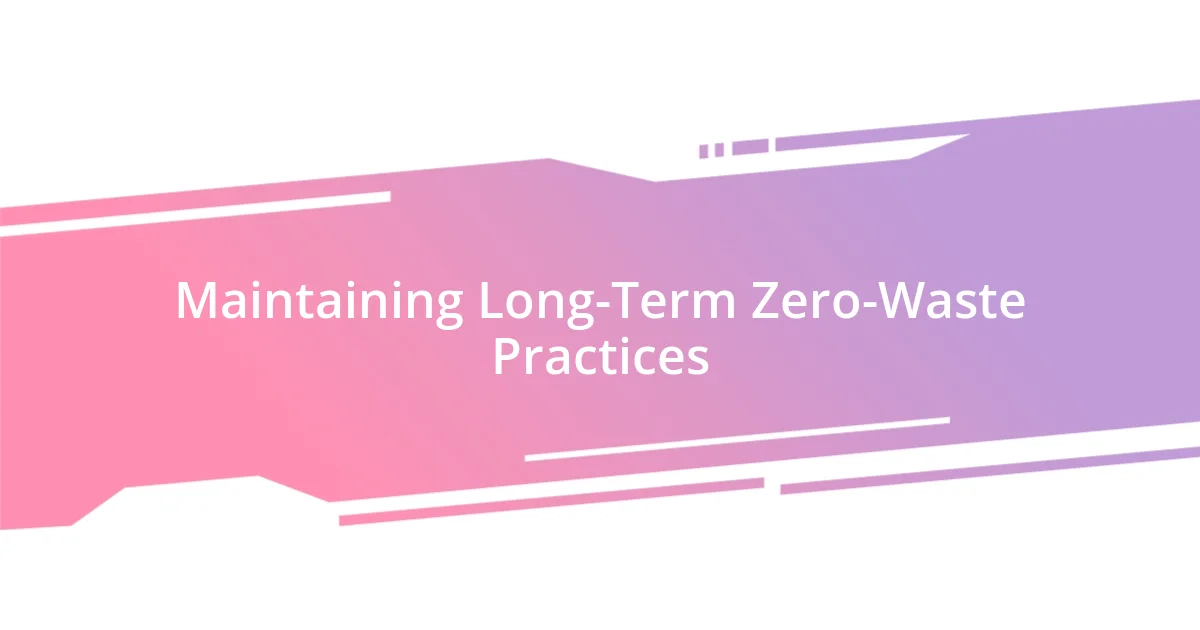
Maintaining Long-Term Zero-Waste Practices
It’s easy to feel overwhelmed at times, but I’ve learned that consistency is vital in maintaining long-term zero-waste practices. For instance, I remember the day I set up my weekly reminder to review what single-use items had slipped into my life. Surprisingly, this little ritual not only kept me accountable but also ignited new ideas for alternatives. Do you take the time to assess your habits regularly?
As I continue on this journey, I find that community support makes a significant difference. Joining a local zero-waste group opened my eyes to swaps I hadn’t considered. There’s something uplifting about sharing tips and experiences with like-minded folks, isn’t there? I often leave these gatherings feeling invigorated and eager to tackle my next challenge, whether it’s learning to make my own toothpaste or exploring bulk buying options.
Moreover, I’ve discovered the power of embracing flexibility. Some days, my efforts are more meticulous than others. Whenever I slip back into convenience, I remind myself that it’s not about perfection. It’s about progress. Have you ever found solace in allowing yourself grace during your journey? Each step, big or small, is still a move toward sustainability, and that mindset alone fuels my commitment.
